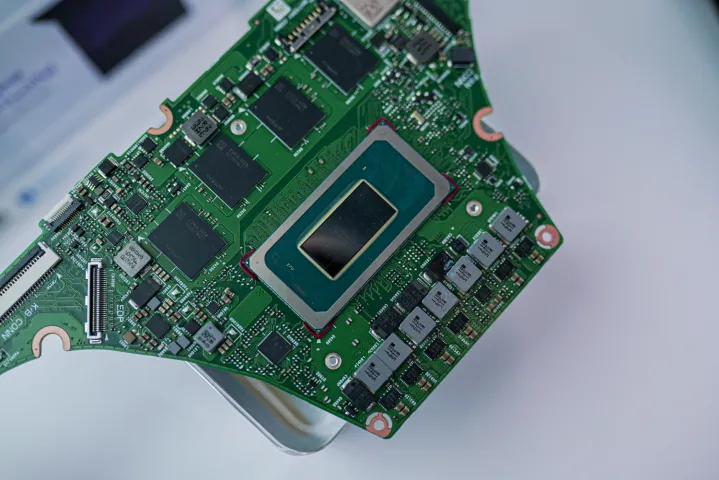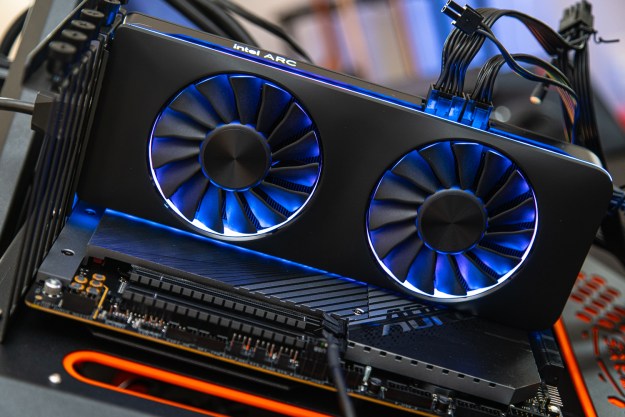
Intel has a lot riding on its next-gen Battlemage graphics architecture, and a very early benchmark shows some promising signs for performance. An Intel Lunar Lake CPU packing a low-power integrated Battlemage GPU was reportedly spotted in the SiSoftware benchmark database. It boasts not only higher performance than Intel’s Meteor Lake chips, but also much better efficiency.
User @miktdt on X (formerly Twitter) spotted the result, which appears to come from an early qualification sample of the HP Spectre x360 14. The benchmark picked up that the laptop was using a Lunar Lake CPU, which is said to come with the Xe2-LPG architecture, a lower-power version of Battlemage.
HP Spectre x360 with Lunar Lake it seemshttps://t.co/wc8LQjMAgy
— Michael (@miktdt) April 25, 2024
In the benchmark, the chip scored 2,108.15 Mpix/s. For some context, Meteor Lake CPUs using Intel’s first-gen Alchemist architecture scored around 1,700 Mpix/s. That doesn’t sound like a massive jump at first, but the Lunar Lake CPU was able to achieve its result with only 17 watts of power. Meanwhile, Meteor Lake consumed 28W for a lower score.
The result also shows that this chip is using 56 Execution Units (EUs), meaning it packs just 7 Xe Cores. By comparison, the Meteor Lake chips it’s going up against have either 15 or 16 Xe Cores, meaning Lunar Lake was able to achieve a higher score at lower power with fewer cores. That’s impressive.
Unfortunately, it doesn’t mean very much. SiSoftware is a general-purpose benchmark, not a real-world workload. It’s testing the capabilities of the GPU rather than how it will actually behave in games and other real applications. Once Lunar Lake chips are available, we’ll still need to take a thorough look at performance to see how it stacks up.
It’s still a very promising sign for what the architecture is capable of. Higher overall performance at lower power with fewer cores bodes well for how performance could translate in real applications. It’s particularly exciting for handheld gaming PCs. Intel’s first outing in this world through the MSI Claw hasn’t been particularly good, so a more efficient chip would make a big difference.
Lunar Lake is still a ways out. Intel has confirmed the processors are coming in 2024 exclusively for mobile configurations. Given what we saw with Meteor Lake chips, however, there’s a good chance Lunar Lake will be available in very limited quantities in 2024, with more options available in early 2025.
Editors' Recommendations
- Intel’s next-gen desktop chips may embrace these two major changes
- Intel Core i9 CPUs are about to get hit with a downgrade, report says
- 4 CPUs you should buy instead of the Intel Core i9-13900K
- Everything we know about Lunar Lake, Intel’s big next-generation chips
- Intel Battlemage graphics cards: release date speculation, price, specs, and more




